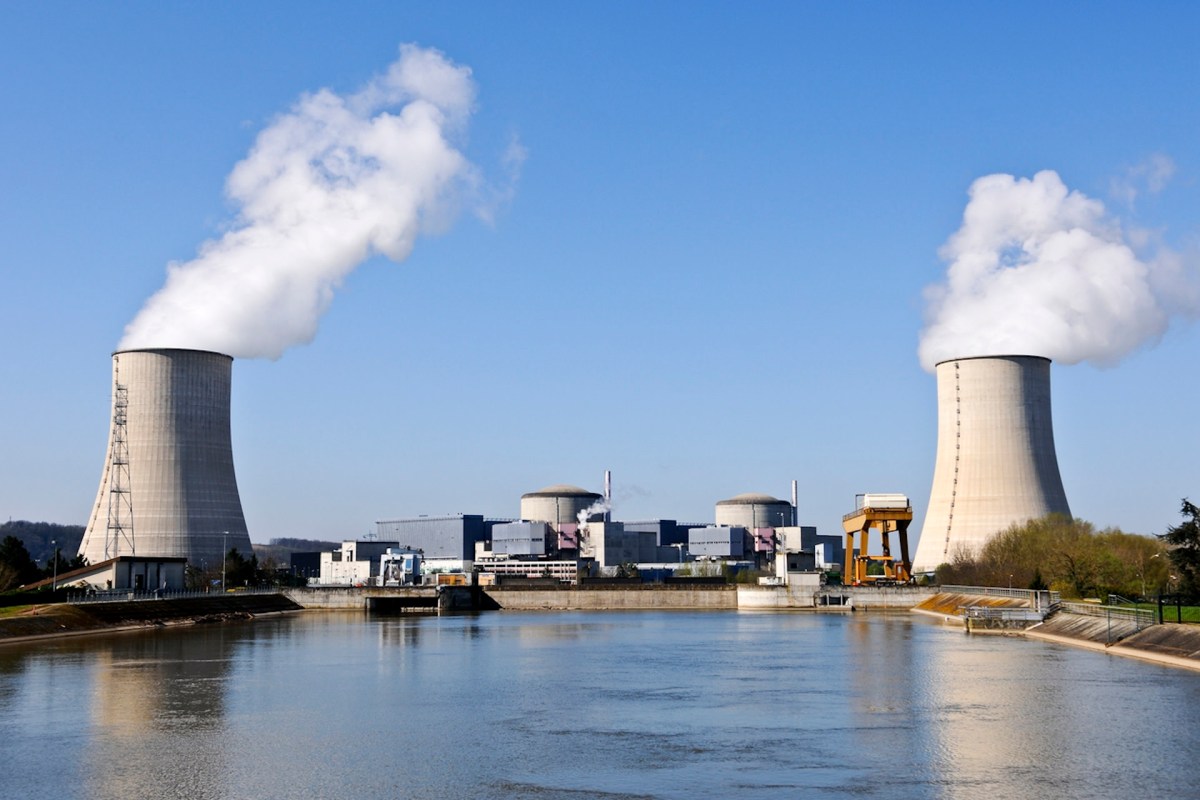France's nuclear power production rose to its highest level in three years, Reuters reported, suggesting future trends in energy production that can limit the burning of dirty energy sources, which contributes to air and land pollution.
According to data from the International Energy Agency, nuclear power production rose 18% over the first nine days in January 2024 compared to the same period a year prior. This comes as an "exceptional" cold wave made its way to France, increasing the demand for heat.
In the United States, nuclear power plants generate more power than any other country, with the 95.49 million kilowatts accounting for 19% of its total electricity generation, per the U.S. Energy Information Administration. France ranked second with 61.37 million kilowatts, accounting for 68% of its electricity generated.
France's growth in nuclear production highlights a future that is not reliant on dirty energy. While there are some fears about nuclear power as it increases in use globally, including high operating costs and construction of new plants, nuclear power can positively impact energy consumption and have lesser environmental impact than traditional, heavily polluting energy sources.
According to North Carolina State University associate professor of nuclear engineering Robert Hayes, nuclear power is "one of the safest forms of energy that's out there." Nuclear power can act as a clean source of energy and a job-creating sector. Nuclear plants are also a good long-term investment, according to University of Illinois energy professor David Ruzic, per CNN; however, the same article cited Stanford University professor Rodney Ewing noting concerns over radioactive waste storage and some potential for repeating historical disaster.
According to France President Emmanuel Macron, nuclear power is key in his republic's strategies for a sustainable future: "What our country needs, and the conditions are there, is the rebirth of France's nuclear industry," he said in 2022, per Reuters. The country aims to increase its nuclear power capacity with 14 new reactors, according to the outlet Power Technology.
With France as a blueprint of nuclear energy's potential, other countries, such as Canada and Ukraine, are also continuing to increase their investment in nuclear power, and the U.S. may follow as well, with a majority of Americans favoring nuclear power to generate electricity.
The U.S. Department of Energy believes that 80% of retired coal plants in the country can become nuclear reactors. With built-in infrastructure and federal incentives to push for more nuclear power capacity, we could see more nuclear power used to generate electricity in the future.
The U.S. government sees the value of nuclear power, having signed an Intergovernmental Agreement with Bulgaria, for example, to develop its nuclear power program. "This agreement is an expression of our shared vision for the development and role of nuclear energy as a key element in achieving the goals of carbon neutrality," said Bulgarian Minister of Energy Rumen Radev.
Join our free newsletter for weekly updates on the coolest innovations improving our lives and saving our planet.









